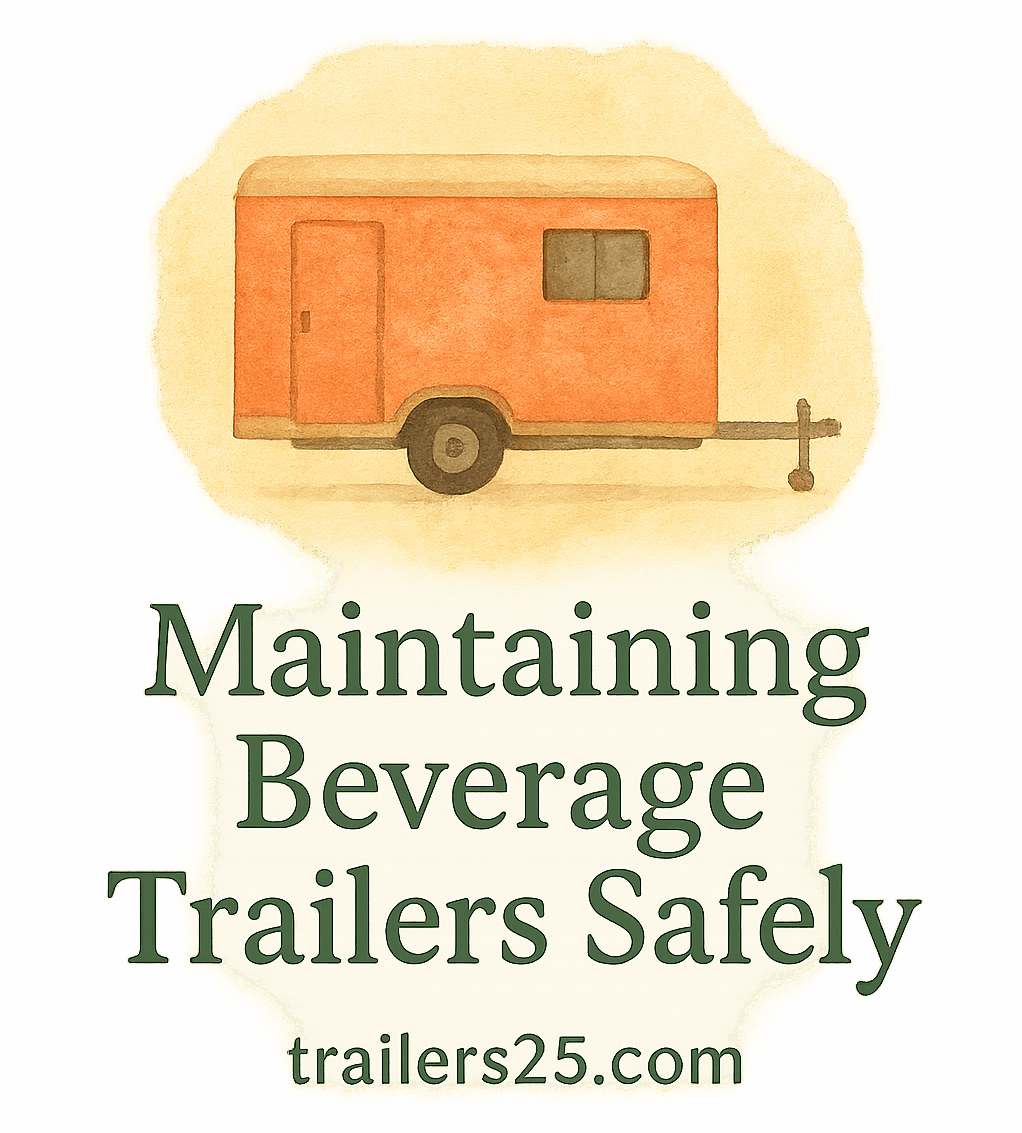Introduction
Thinking of buying a beverage trailer? Whether you’re planning to launch a mobile coffee business, a juice truck, or a traveling cocktail bar, one thing is certain—you need to buy smart. Beverage trailers are an investment, and like any big purchase, the way you approach it determines whether you save money or end up with regret. That’s why learning essential tips for buying beverage trailers safely is non-negotiable.
In this guide, we’ll cover the ten most important steps you should take to avoid costly mistakes, ensure compliance, and protect your business future.
Why Buying Beverage Trailers Safely Matters
Buying a beverage trailer isn’t just about finding something that looks good—it’s about making sure it serves your needs, meets legal standards, and keeps your business running smoothly.
Avoiding Costly Mistakes
Have you ever heard horror stories of people buying trailers that break down within weeks? Skipping due diligence can easily lead to wasted money.
Ensuring Compliance with Regulations
Health, safety, and business compliance are no joke. Not following trailer rules could lead to shutdowns, fines, or legal trouble.
Protecting Your Investment
A beverage trailer is often the heart of your mobile business. Protecting it ensures long-term profitability and peace of mind.
Tip 1: Define Your Business Needs First
Before you even browse listings, get clear about what you need.
Consider Beverage Type
Selling smoothies requires different setups compared to serving beer. Think refrigeration, tap systems, or hot water units depending on your menu.

Storage and Serving Requirements
Plan for how much product you’ll store, what serving style works best, and how many customers you’ll serve per day.
Tip 2: Research Different Beverage Trailer Types
Not all trailers are created equal.
Enclosed vs. Open Beverage Trailers
Enclosed trailers provide security and protection from weather. Open trailers are cheaper but limit storage and safety.
Custom-Built Beverage Trailers
If you have very specific needs, a custom option might save headaches later, though it comes at a higher upfront cost.
Tip 3: Set a Realistic Budget
Budgeting is about more than just the sticker price.
Balancing Cost and Quality
A cheap trailer that breaks down is no bargain. Invest wisely in durability and functionality.
Avoiding Hidden Expenses
Don’t forget insurance, permits, and upgrade costs. Factor these in to avoid nasty surprises.
Tip 4: Verify Seller Reputation
Who you buy from matters.
Licensed Dealers vs. Private Sellers
Dealers usually provide warranties and compliance assurance. Private sellers can be cheaper but riskier.
Reading Reviews and Testimonials
Check customer experiences online. A trusted seller should have positive feedback and verifiable sales history.
Tip 5: Inspect the Trailer Thoroughly
Never skip inspection.
Structural Integrity
Look for rust, dents, or weak flooring that could compromise safety.
Electrical and Plumbing Systems
Faulty wiring or plumbing can shut down your business. Test everything.
Tires and Axle Conditions
A broken axle means downtime. Check tires for wear and ask about maintenance history.
Tip 6: Ensure Safety and Compliance
A safe trailer keeps customers and employees happy.
Food and Beverage Safety Standards
Follow food safety rules for sanitation, refrigeration, and contamination prevention.
Trailer Safety Features
Look for fire extinguishers, first-aid kits, and non-slip flooring.
Tip 7: Check Legal Requirements
Every location has its rules.
Licensing and Registration
Your trailer must be legally registered and roadworthy.
Health Permits and Business Compliance
Selling beverages requires health certifications. Check local business compliance guidelines.
Tip 8: Think About Long-Term Maintenance
Maintenance is inevitable—plan ahead.
Routine Maintenance Checklist
Oil, brakes, tires, and refrigeration units need regular care.
Cost of Repairs and Upgrades
Ask how much replacement parts and upgrades cost before committing.
Tip 9: Consider Customization and Upgrades
Your trailer should grow with your business.
Adding Extra Features
From solar panels to modern beverage dispensers, upgrades can boost efficiency.
Modifications for Efficiency
Check customization and upgrades that align with your goals.
Tip 10: Always Test Before You Buy
Would you buy a car without a test drive? Same rule here.
Road Test
Take the trailer for a short drive to check handling and stability.
Equipment Functionality
Run all beverage systems to ensure they’re fully operational.
Common Mistakes to Avoid When Buying Beverage Trailers
- Rushing into a purchase without research
- Ignoring maintenance costs
- Overlooking legal requirements
- Choosing looks over functionality
- Not verifying seller credibility
Conclusion
Buying a beverage trailer is a big step, but with the right knowledge, it can also be one of the best investments for your business. By following these 10 essential tips for buying beverage trailers safely, you protect your money, your business, and your customers. Take the time to research, inspect, and plan—your future self will thank you.
FAQs
1. What should I look for in a beverage trailer?
Focus on durability, compliance, and equipment that matches your menu.
2. How much do beverage trailers usually cost?
They can range from $10,000 to $50,000+ depending on size, customization, and condition.
3. Do I need special permits for beverage trailers?
Yes, most regions require health permits, licenses, and proper registration.
4. Can I customize a beverage trailer after purchase?
Absolutely, many owners add modifications to improve efficiency.
5. What are the most common maintenance needs?
Regular checks on tires, refrigeration, and plumbing systems are essential.
6. Should I buy new or used beverage trailers?
New ensures warranty and compliance, while used can save money if inspected carefully.
7. Where can I find trusted beverage trailer dealers?
Start with licensed dealers and check online marketplaces, but always verify reputation before buying.
